Among the simplest pleasures, sipping on a warm cup of herbal tea is both comforting and offers many health benefits. Herbal teas have positively contributed towards wellness for centuries, celebrated for their healing properties and ability to soothe the mind and body. From peppermint to chamomile and beyond, each herbal tea type carries its own unique set of benefits, making it a perfect addition to any daily routine.
Jump to:
- Understanding Herbal Tea and Its Benefits
- What Is Herbal Tea Good For?
- The Top 5 Healthiest Teas
- How Many Cups of Herbal Tea a Day is OK?
- When Should You Drink Herbal Tea?
- Cautions and Considerations
- Brewing Your Own Herbal Tea
- Balancing Flavours
- Nutrives to Nourish
- Frequently Asked Questions About Herbal Tea
Understanding Herbal Tea and Its Benefits
Herbal tea isn't technically tea, as it doesn't come from the Camellia sinensis plant like black, green, or oolong teas. Instead, it's an infusion or blend of leaves, fruits, bark, roots, or flowers belonging to almost any edible, non-tea plant. This variety of ingredients contributes to the vast array of herbal teas and their benefits, making them a fascinating subject for anyone looking to enhance their health naturally.
What Is Herbal Tea Good For?
The benefits of herbal tea are as varied as the plants from which they're brewed. Some teas are known for their calming and relaxing effects, while others can help with digestion, reduce cold symptoms, or provide a boost of energy without the caffeine found in traditional teas or coffee. What makes herbal teas so special is their ability to support the body's health in multiple ways, from anti-inflammatory properties to heart health and beyond.
The Top 9 Healthiest Teas
1. Peppermint Tea
Peppermint tea is not just a breath freshener. It is a powerhouse when it comes to assisting digestion. The natural compounds in peppermint can help soothe the stomach and relieve digestive discomforts such as bloating and indigestion. Additionally, its refreshing flavour makes it a delightful choice for those looking to clear their mind and relieve tension headaches. A cup of peppermint tea can be a soothing escape, offering a moment of calm in your busy day.
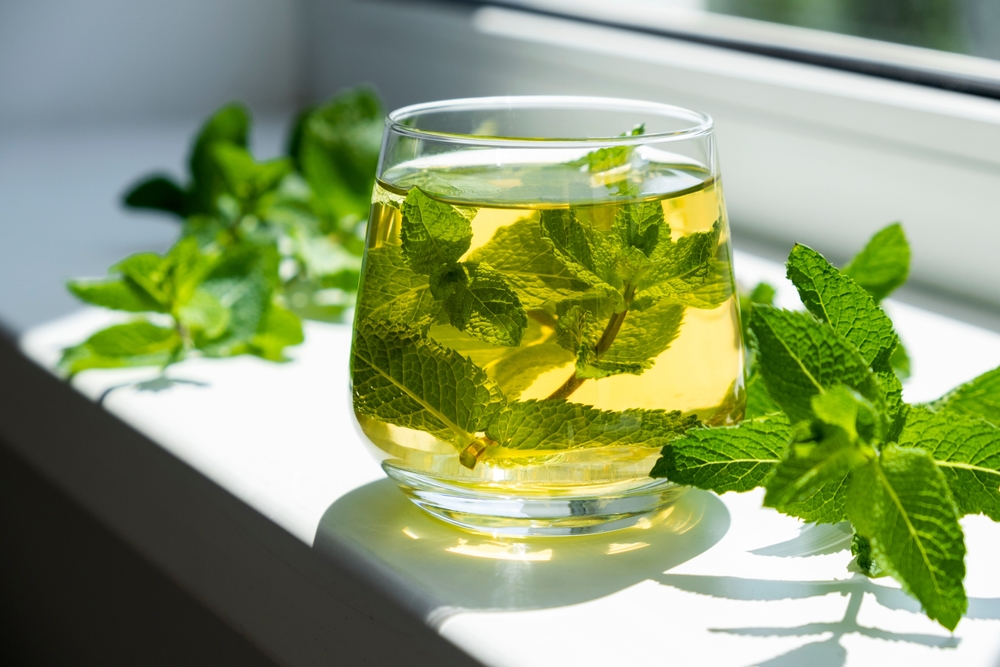
2. Chamomile Tea
The calming properties of chamomile tea are well-documented, making it a popular choice for those seeking to reduce anxiety and promote better sleep. Chamomile contains antioxidants that soothe the nervous system, easing you into a peaceful state of relaxation. Whether you're winding down after a long day or seeking to improve your sleep quality, chamomile tea is the perfect natural approach.
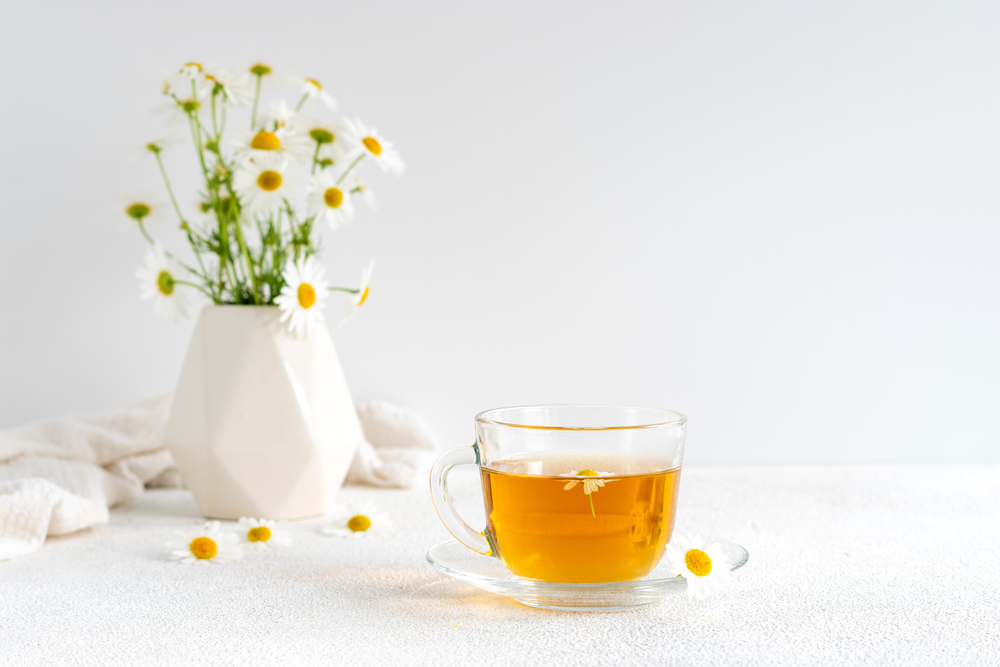
3. Ginger Tea
Ginger tea brings warmth and wellness with every sip. Known for its invigorating spicy flavour, it assists digestive health, easing stomach discomfort, reducing nausea, and promoting proper digestion. Beyond its gastrointestinal benefits, ginger tea is known for its ability to strengthen the immune system, thanks to its high levels of antioxidants and anti-inflammatory properties. Whether you're feeling under the weather or simply seeking a warming beverage, ginger tea is a robust choice.
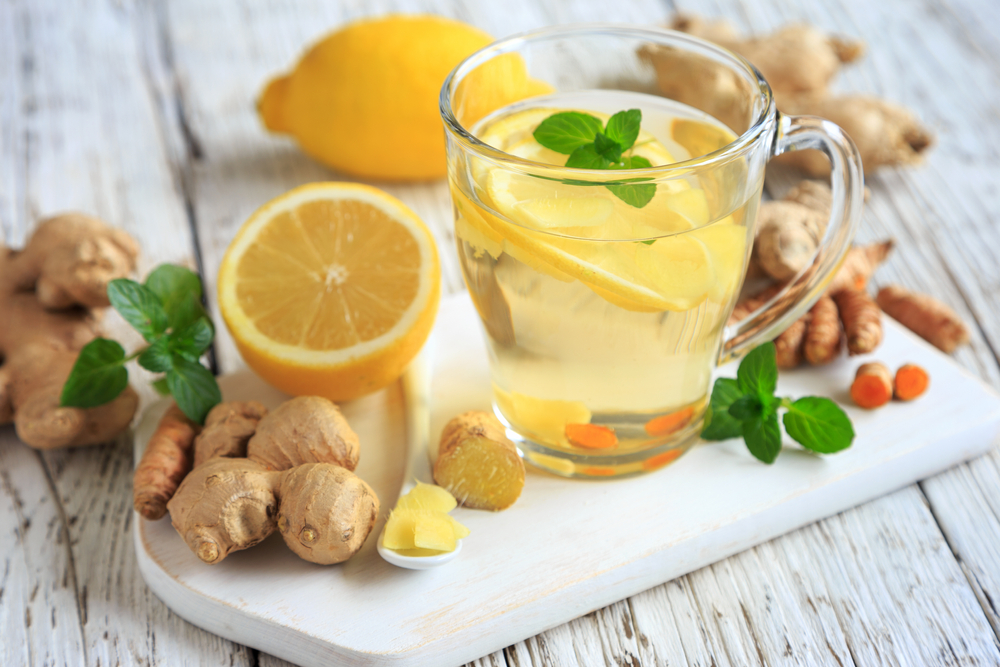
4. Hibiscus Tea
Regular consumption of hibiscus tea can contribute to lower blood pressure levels, offering a natural solution for managing hypertension. This tart, cranberry-like tea is rich in antioxidants, which help combat free radicals and reduce oxidative stress. With each cup, you're taking a step towards supporting your heart health.
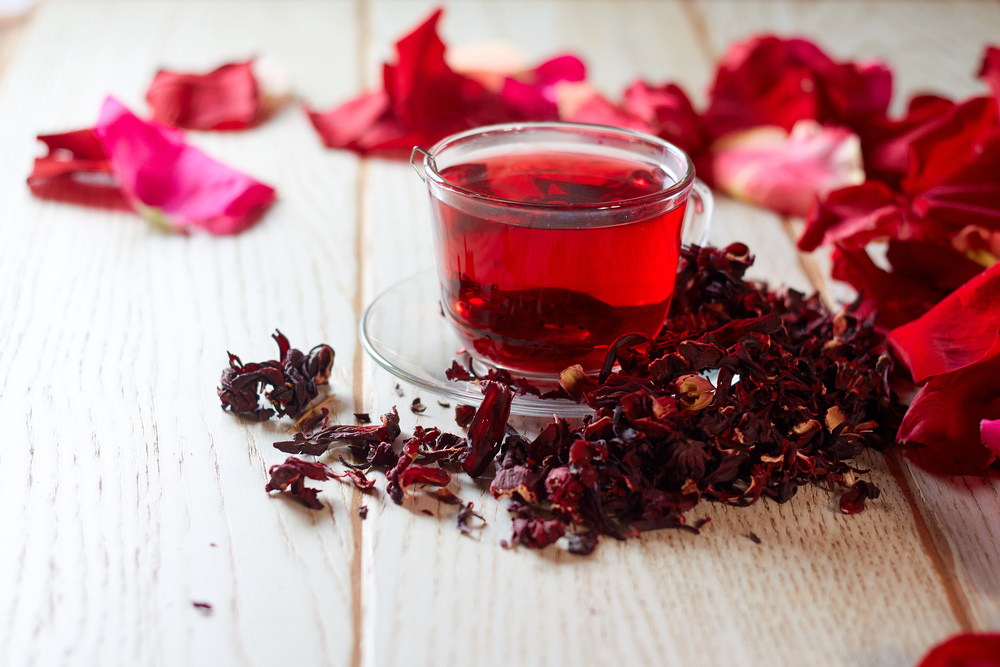
5. Green Tea
Green tea, though not a herbal tea in the traditional sense, deserves a place on our list for its remarkable benefits. Packed with antioxidants, particularly epigallocatechin gallate (EGCG), green tea is associated with a lower risk of heart disease and certain types of cancer. Its modest caffeine content can also provide a gentle energy boost, making it an excellent alternative to coffee.
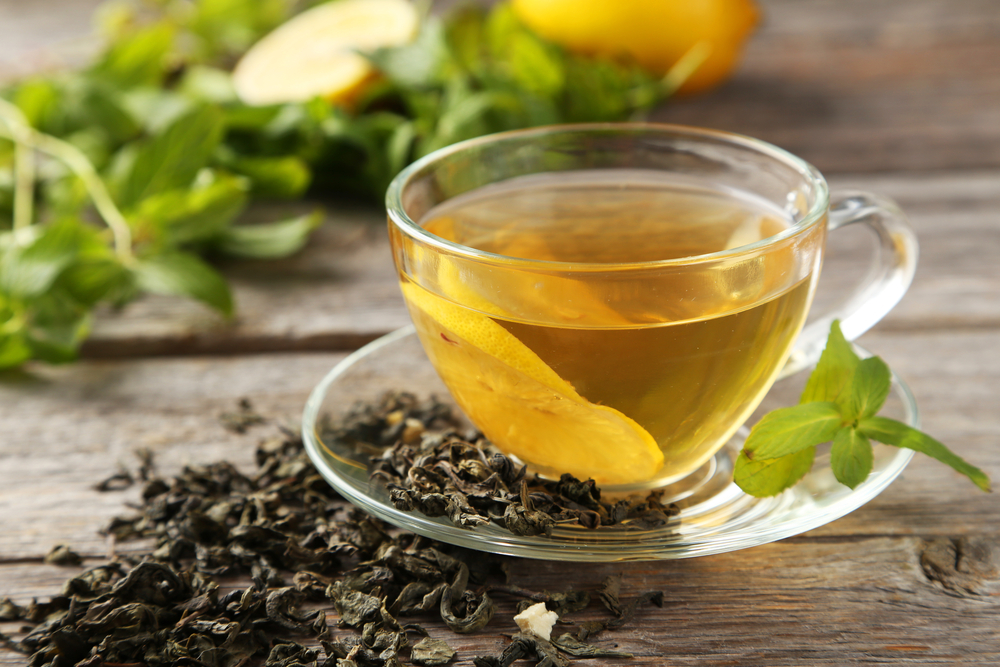
6. Rooibos Tea
Rooibos tea, or red bush tea, comes from South Africa and is celebrated for its sweet, earthy flavour and many health benefits. Naturally caffeine-free, it's packed with antioxidants and has been linked to improved heart health and reduced risk of diabetes. Rooibos can also soothe stomach cramps and allergies, making it a versatile addition to your tea collection.
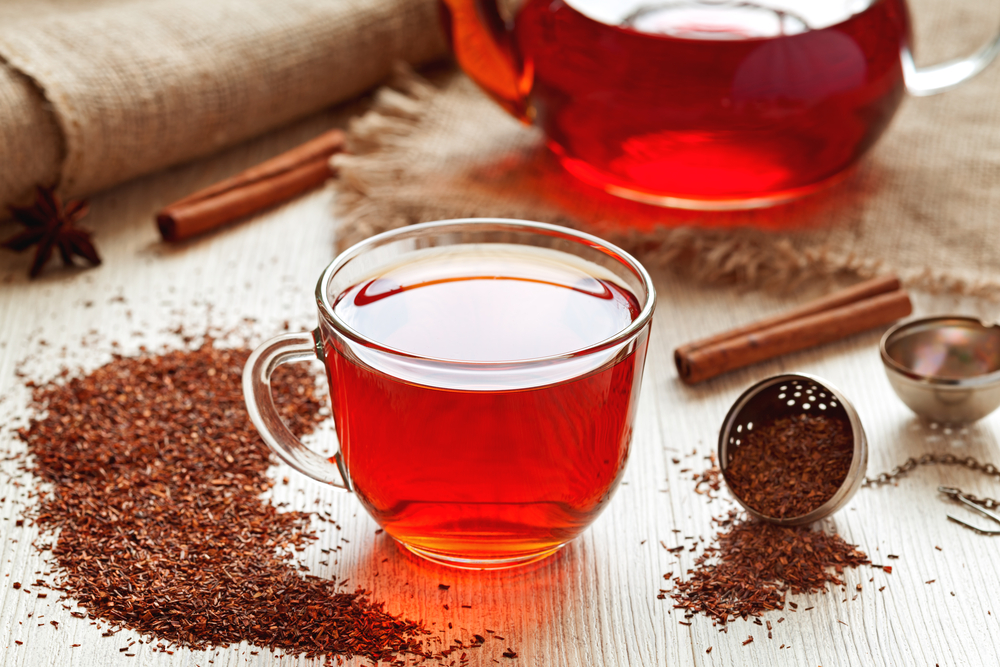
7. Lemon Balm Tea
Lemon balm tea, with its mild lemon scent and flavour, is a refreshing herbal tea known for its ability to ease stress and anxiety, and even help with sleep disorders. Its calming effect on the mind and body can be attributed to its natural sedative properties, making it an excellent choice for those looking to relax and unwind.
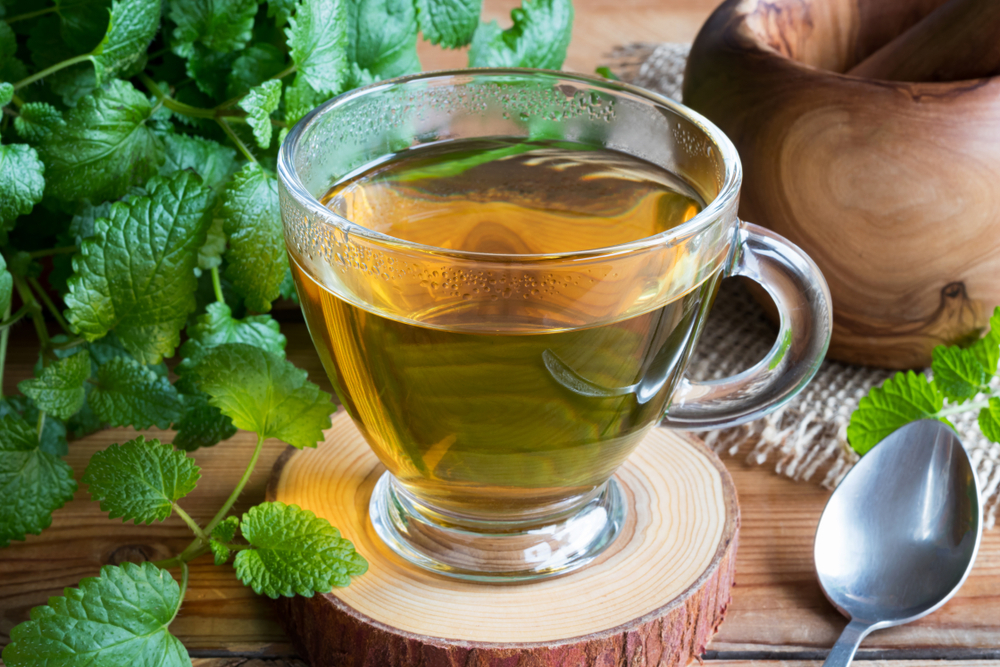
8. Echinacea Tea
Echinacea tea is often turned to for its immune-boosting properties. Derived from the echinacea plant, it's commonly used to prevent or reduce the severity of colds and other respiratory infections. Its earthy, slightly tangy flavour can be a comforting remedy during cold and flu season.
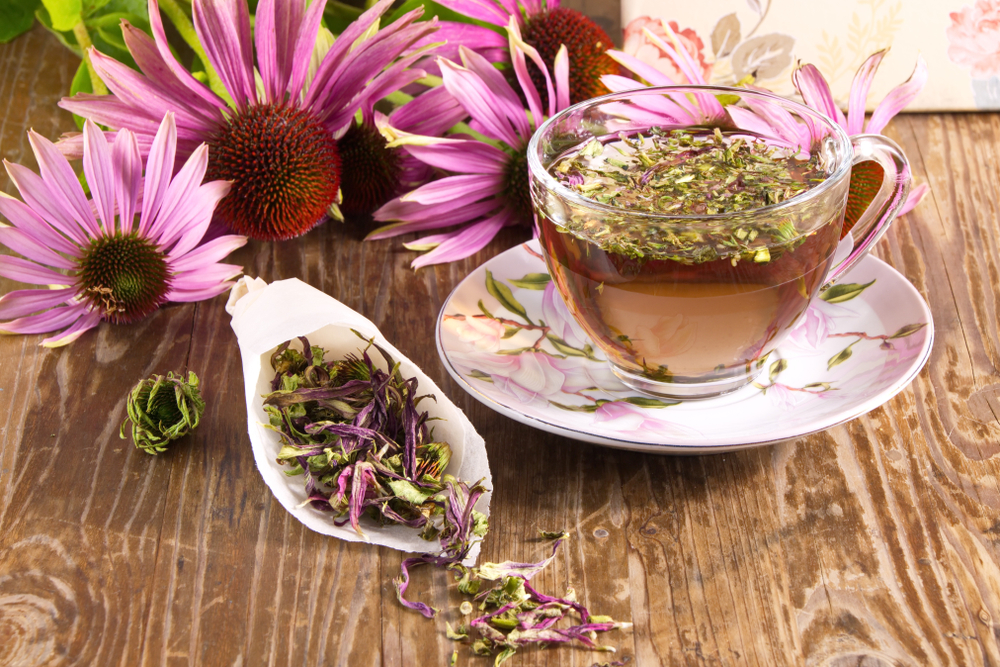
9. Dandelion Tea
Dandelion tea is made from the root or leaves of the dandelion plant and is known for its detoxifying properties. It can support liver function, promote healthy digestion, and even act as a mild diuretic to help reduce bloating. With its slightly bitter, grounding flavour, dandelion tea is a potent herbal brew that supports overall health.
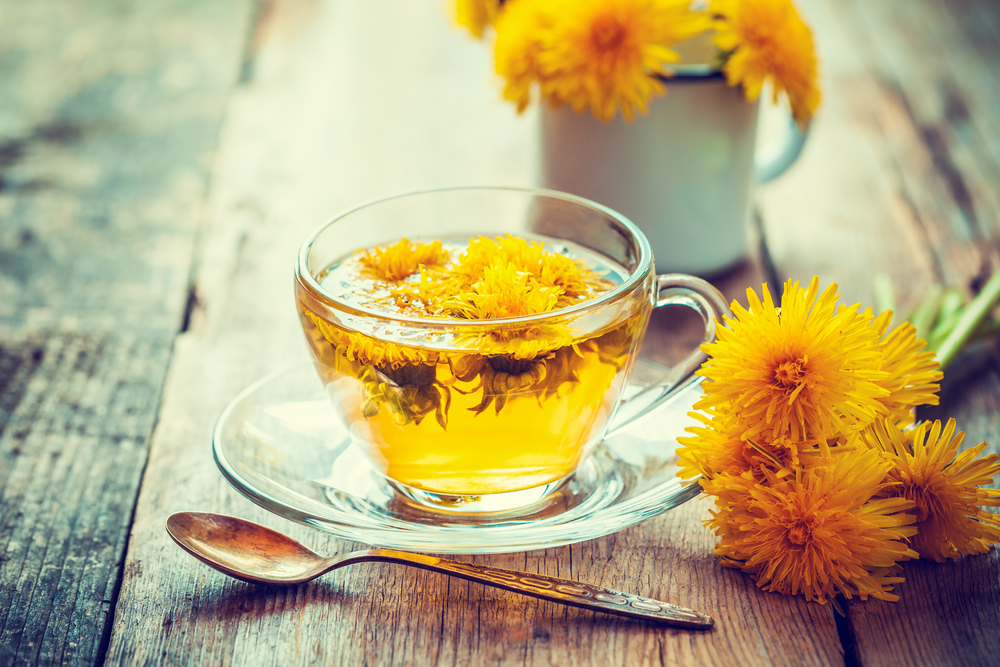
How Many Cups of Herbal Tea a Day is OK?
While herbal teas are generally safe, consuming them in reasonable amounts—typically 2-3 cups per day—is advised. This allows you to enjoy their benefits without overdoing it, as excessive consumption can lead to negative side effects in some cases.
When Should You Drink Herbal Tea?
The best time to drink herbal tea depends on the type and your personal health goals. Morning teas like green tea can provide a gentle energy boost, while evening teas like chamomile are better suited for relaxation and sleep preparation.
Cautions and Considerations
While herbal teas offer numerous health benefits, they're not suitable for everyone. Certain herbs can interact with medications or affect conditions like pregnancy. It's always best to consult with a healthcare provider if you have any concerns about herbal tea interactions.
Herbal Teas and Body Cleansing
Many people turn to herbal teas for their detoxifying properties. Certain teas, like dandelion or milk thistle, may support liver health and encourage the body's natural detoxification processes. However, it's essential to approach detox teas with caution and seek professional advice, as not all claims made by detox tea products are supported by evidence.
Brewing Your Own Herbal Tea
If you’re looking for a healthy tea to help you cut back on caffeine, boost your nutrient intake and support your immune system, home-blended herbal teas offer a delicious alternative to tea and coffee. The joy of making tea blends with herbs is that you can include healing plants to enhance your health and well-being and even address common ailments.
A herb is the term used for any plant with therapeutic properties that influence our health. Herbal teas have a reputation for not tasting as delicious as the sweet hot drinks found at coffee shops, but you’ll be thrilled with the tasty creations you can rustle up at home with fragrant herbs.
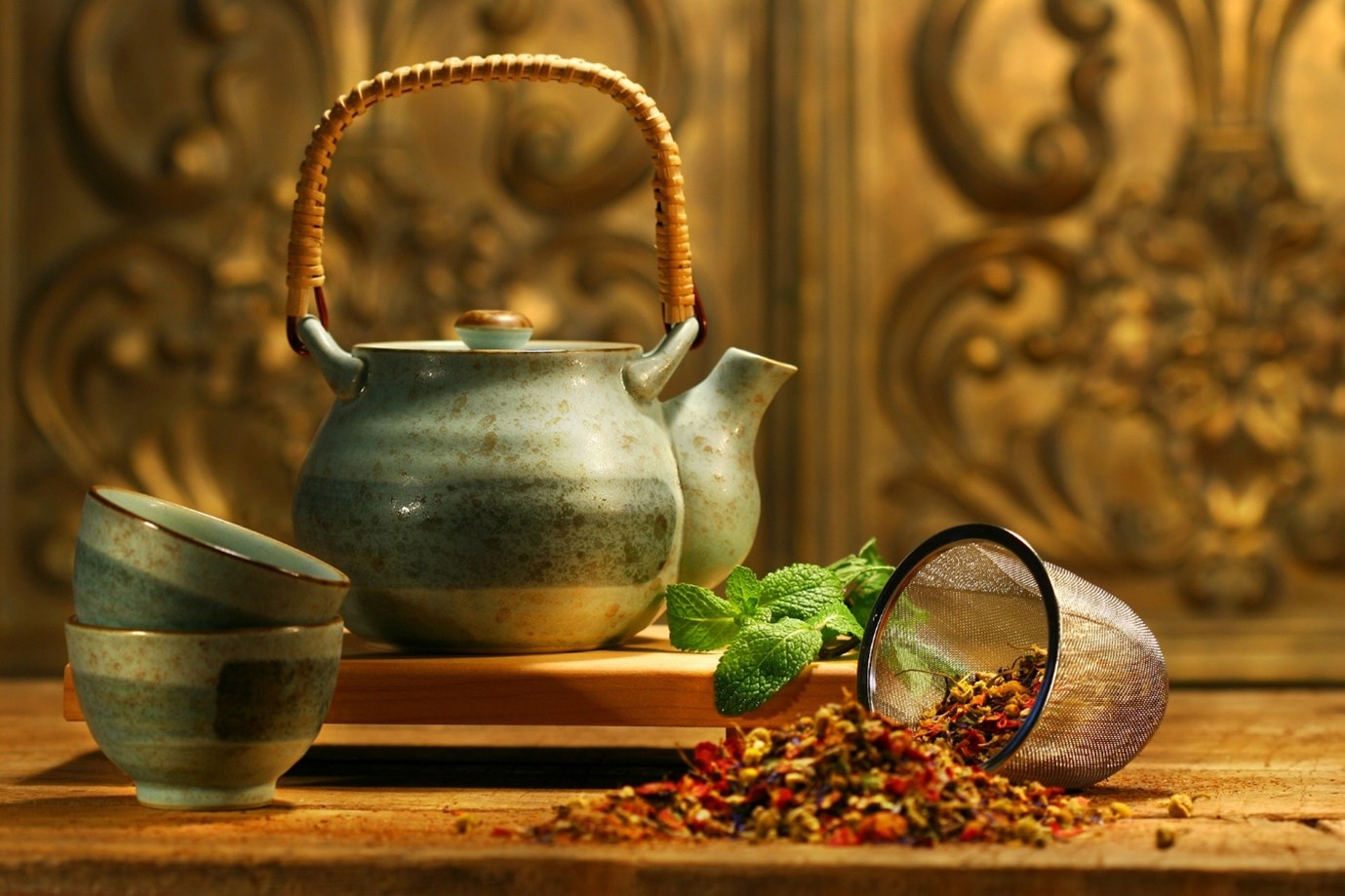
Balancing Flavours
When you’re preparing herbal remedies purely for health benefits, sometimes you’ll use herbs with a bitter taste, and these can make herbal teas a little “challenging” to drink. When making herbal tea blends to enjoy at home for pleasure or improve your general health, you can pick herbs with pleasing flavours.
Spices
If you love the comforting, fragrant warmth of chai teas, you’ll have fun blending the following spices into your herbal blends:
- Cinnamon bark – the deep, aromatic, sweet and smoky taste of cinnamon makes a very pleasant addition to herbal teas. This herb also helps to settle digestion, easing bloating and griping.
- Dried ginger root – fiery and earthy, ginger brings a wonderful warmth to herbal teas, and it also eases nausea and produces an anti-inflammatory effect throughout the body.
- Cloves – used sparingly, cloves deliver an enticing taste of Christmas to your tea and can help calm the stomach. Add too many cloves, and you might end up with a numb tongue because they contain a compound called eugenol that acts as an anaesthetic!
- Liquorice – warm and heavy with aniseed accents, liquorice adds a lovely flavour and natural sweetness to herbal tea blends. It’s also an anti-inflammatory herb that can help soothe the respiratory system during coughs and colds.
- Vanilla – a sweet spice reminiscent of cakes and bowls of ice cream, vanilla can add a familiar note to a herbal tea that elevates the blend.
The Mint Family
A number of herbs belonging to the Lamiaceae (mint) family have a particularly tantalising taste. With their invigorating and uplifting flavours, blends with members of the mint family make a good tea for the morning.
Peppermint and spearmint both provide a classic mint taste that packs a punch, but you can blend them with other varieties, including chocolate and apple mints. Each Mentha species will help to calm the digestive system and decongest you during colds.
Lemon balm is another member of the mint family used to infuse plenty of flavour into a cup of herbal tea. And why not try the sherbet-like notes of lemon verbena?
Fruity Flavours
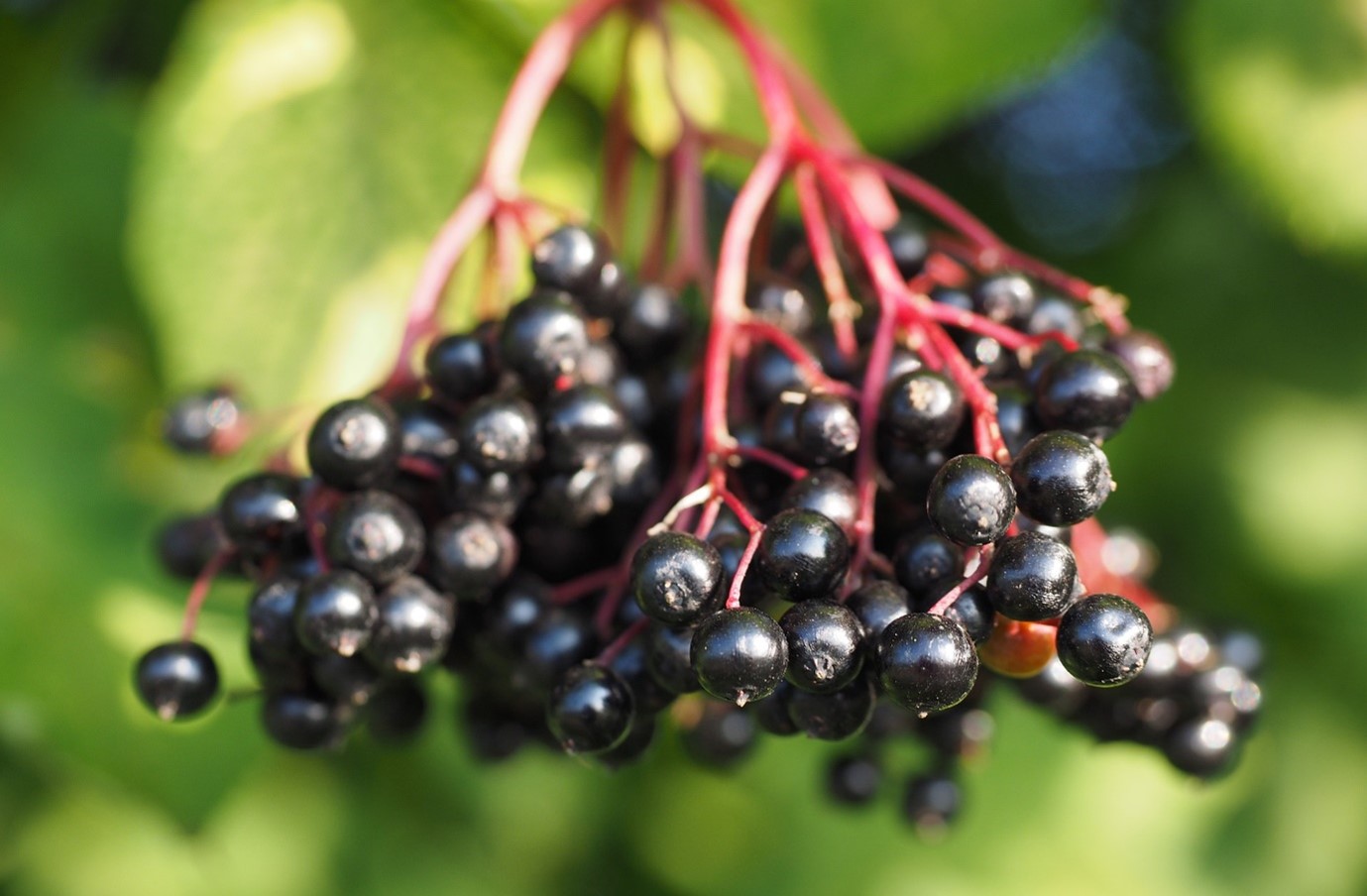
Dried fruits bring a bright and fresh flavour to a cup of tea, and the herbal world has several wonderful berries you can add to your blends. Elderberries bring a dark and juicy berry taste, but they’re also a supportive remedy for the immune system and can help when you’re feeling under the weather with a cold.
Rosehips deliver a delicate and floral fruity flavour. Packed with vitamin C, they’re a nutritious addition to your cuppa. Rosehips are gently astringent to the intestines, which can address upset stomachs.
Though not technically herbs, dried orange and lemon peel make a welcome addition to tea blends because their citrus notes lift the flavour profile and add a refreshing aroma.
Floral Friends
Herbal flowers can improve the aroma of your herbal tea and enrich the flavour experience. Each flower discussed here also helps to relax the mind, making blends rich with flowers a good herbal tea for sleep.
German chamomile flowers provide earthy and sweet apple-like notes to a tea blend, and this herb is also a superb soothing and anti-inflammatory remedy for the gastrointestinal tract. Perfect for those of us who suffer from digestive issues when stressed.
Lime blossom has to be one of the most delicious herbal additions to a tea blend, infusing a floral, honey sweetness. Just like German chamomile, lime blossom can help ease tension and can be helpful when you have sore, stiff muscles or headaches caused by stress.
If you love sipping a chilled glass of elderflower cordial in the summer, the flowers can be added to your herbal tea blends to bring that taste of summer all year round. The distinctive crisp, slightly fruity and musky flavour works well beside other floral and fruit herbal ingredients. These flowers are an incredible remedy at the start of respiratory infections, where they help guide the body through a fever, and if a heavy cold does strike, they can help loosen and clear mucus.
Nutritives to Nourish
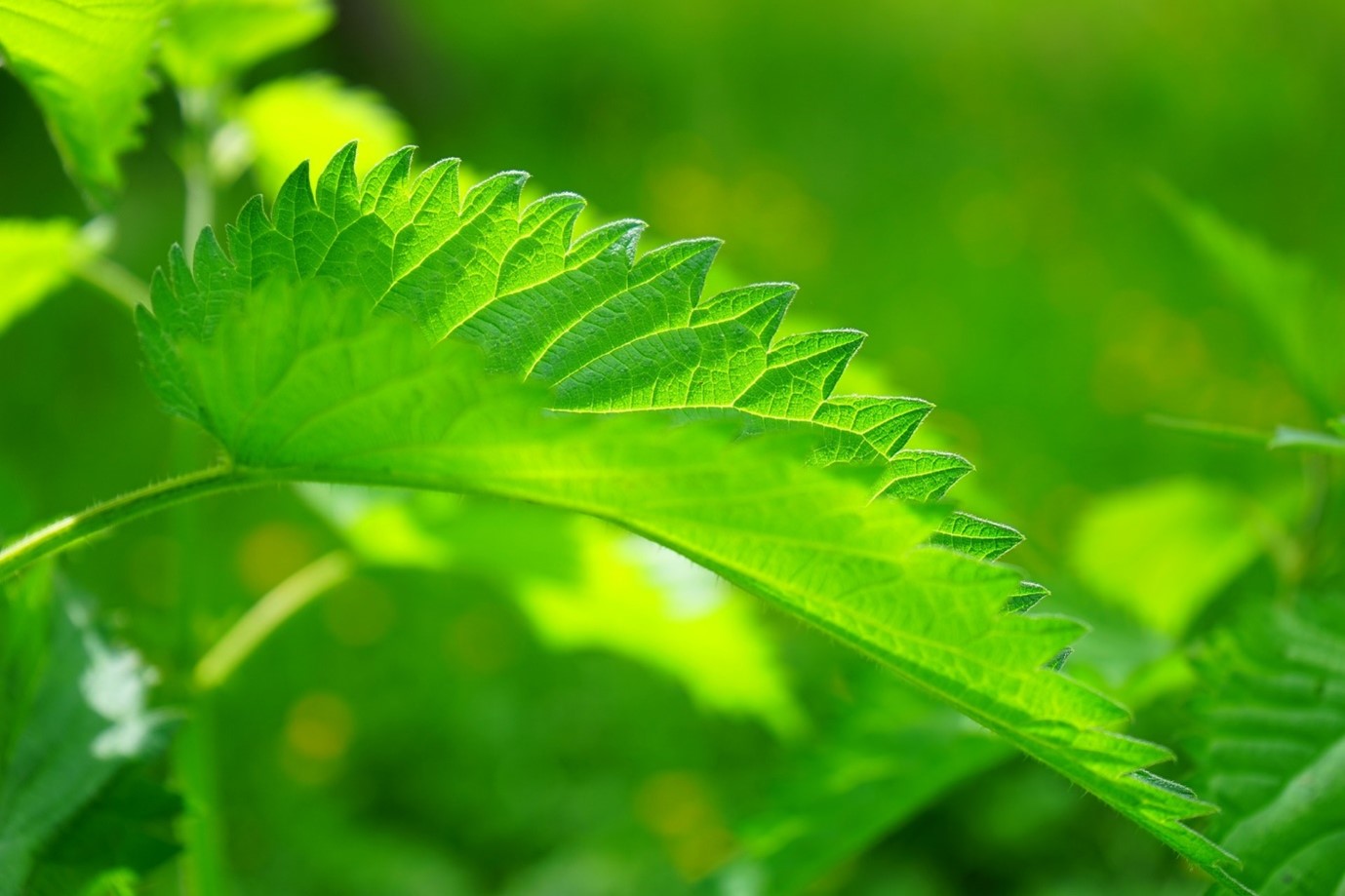
Herbal tea benefits include improving our nutrition. There is a class of herbs known as nutritives with a higher-than-average level of vitamins and minerals. When you infuse nutritive herbs to make a cup of herbal tea, these nutrients are extracted into the water. They can then be rapidly absorbed across the small intestine into the bloodstream for use throughout the body.
Nutritives make a good base for your herbal tea blends because they bring health benefits, and most offer an earthy or neutral flavour. You can happily add other types of herbs without the flavours clashing.
Oat straw is a nutritive herb full of B vitamins that is very soothing to the nervous system. It can be used as a key ingredient for relaxing cups of herbal tea for anxiety. It has a taste similar to the comforting scent of warm hay and is a useful foundation herb in blends because its neutrality allows it to mix well with other flavours.
Nettles provide a green and earthy flavour with hints of mineral saltiness. A good source of iron, the vitamin-rich nettle is also a superb anti-allergy herb that can be drunk in spring to ease the misery of hay fever.
The Perfect Cup of Herbal Tea
If you’re new to blending your own herbal teas, a great formula to follow is 60% nutritives and 40% “flavour” herbs. Of these flavour herbs, the strong tastes, such as mint, could be kept to around 20% (with spices at around 10%) unless you truly want them to be the star of the show!
To brew the best herbal teas,make sure your dried herbs are chopped as finely as possible to maximise the surface area for flavour extraction. Ideally, add them loose to a teapot or jug. Pour on freshly boiled water and allow them to infuse for at least ten minutes before straining.
Herbal teas often benefit from a touch of sweetness, such as a little honey or agave, but you can also give sweetness by adding herbs such as liquorice and marshmallow root to the blend.
Frequently Asked Questions About Herbal Tea
Is Herbal Tea Healthier Than Green Tea?
Both herbal and green teas offer health benefits, but their profiles differ. Green tea is rich in antioxidants and is well-studied for its potential to reduce the risk of heart disease. Herbal teas, on the other hand, offer a wide range of health benefits depending on the blend. Whether one is healthier than the other depends on your personal health needs and preferences.
Can Herbal Tea Help with Weight Loss?
Certain herbal teas can encourage weight loss by enhancing metabolism, reducing appetite, or improving fat burning. Green tea, for example, has been studied for its ability to boost metabolic rate. However, it's essential to remember that no tea can replace a healthy diet and regular exercise for effective weight loss.
Are There Herbal Teas with Caffeine?
Most herbal teas are naturally caffeine-free, making them a great choice for those looking to reduce their caffeine intake. However, some teas like yerba mate, which is often considered herbal, do contain caffeine. Always check the label if you're sensitive to caffeine or looking to avoid it.
Can I Drink Herbal Tea if I'm Pregnant?
Certain herbal teas, like ginger or peppermint, can be beneficial during pregnancy, helping with nausea and digestion. However, some herbs can be unsafe or stimulate uterine contractions. Always consult your healthcare provider before adding new herbal teas to your diet during pregnancy.
Does Herbal Tea Expire?
Herbal teas do have a shelf life, typically ranging from 1 to 3 years if stored properly in a cool, dry place. While expired tea might lose its potency and flavour, it's usually not harmful to consume. However, always check for signs of spoilage, such as a musty smell or discolouration, before brewing.
How Can I Make My Herbal Tea Taste Better?
If you find your herbal tea too bland or bitter, try adding natural sweeteners like honey or stevia. Fresh lemon juice, mint leaves, or a cinnamon stick can also enhance the flavour without adding sugar. Experimenting with brewing times can also help; overbrewing can lead to bitterness.
Is Herbal Tea Good for Hydration?
Herbal tea is an excellent way to keep hydrated. Since most herbal teas are caffeine-free, they don't have the diuretic effects that caffeinated beverages might have, making them a hydrating choice throughout the day.
Can Herbal Tea Interfere with Medications?
Some herbal teas can interact with medications by affecting how they're absorbed or metabolised. For instance, St. John's Wort can interfere with the effectiveness of certain prescription medications. It's important to consult a healthcare professional if you're on medication and unsure about the herbal teas you're consuming.
How Do I Choose the Best Herbal Tea for Me?
Selecting the best herbal tea depends on your health goals and taste preferences. Consider what you're hoping to achieve, whether it's better sleep, improved digestion, or stress relief. Reading labels and researching the benefits of different herbs can help you make an informed choice. Sampling a variety of teas can also help you discover your favourites.
Your Herbal Tea Journey With Centre of Excellence
Feeling inspired to discover more about the art and science of herbal teas? Our Herbal Tea Blending Diploma Course at Centre of Excellence is designed to guide you through the vast landscape of herbal teas and their benefits. From understanding the different types of herbs to blending your own delicious and healthful teas, this course has it all.
Why Centre of Excellence?
- Accessibility: We firmly believe that everyone deserves access to quality education. That's why we've set an affordable course price, making it accessible to as many learners as possible.
- Learn on Your Terms: Our courses are designed with your lifestyle in mind. Enjoy the freedom to learn at your own pace, fitting your studies seamlessly into your schedule.
- Diverse Learning Materials: Our course covers a wide range of topics related to herbal teas, from the fundamentals of different herbs to the craft of blending your own teas for health and enjoyment.
- Supportive Learning Environment: Enrolling in our course means joining a supportive community. Benefit from personalised tutor feedback and connect with fellow tea enthusiasts to share insights and experiences.
Special Invitation
Join us on a flavourful and healthful journey with the Herbal Tea Blending Diploma Course, available at £29 for a limited time.





